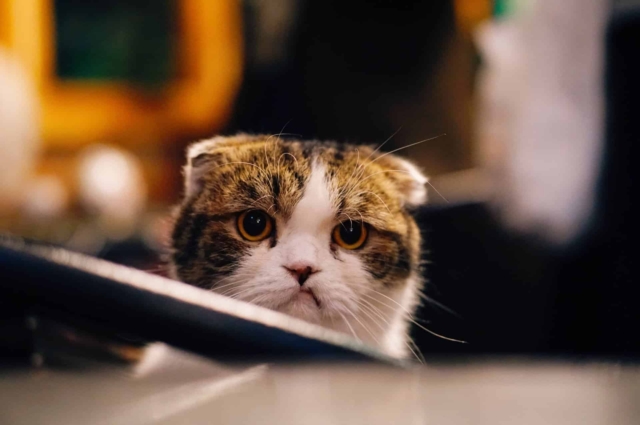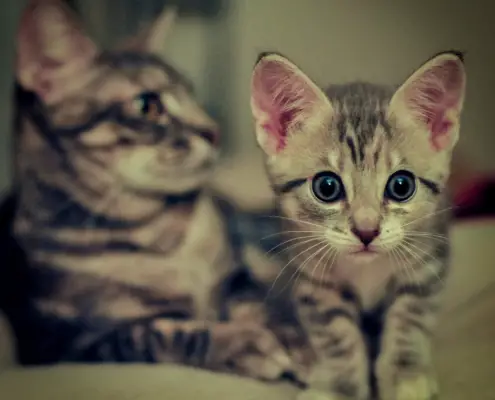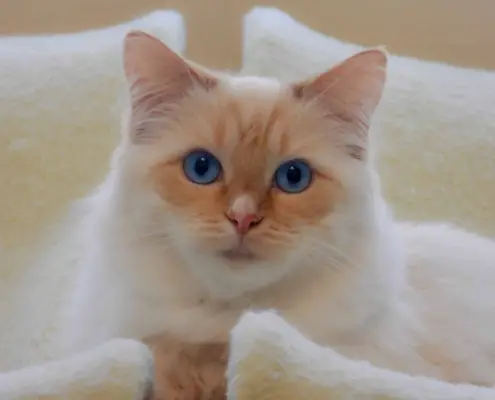
Feline anxiety is a condition that affects many cats around the world. While some people may believe that cats are independent and self-reliant, they can indeed experience anxiety just like humans and other animals. Understanding feline anxiety is crucial for providing the best care and support for our feline friends. This article will explore the causes of feline anxiety, how to spot the signs, and provide tips for managing and preventing anxiety in cats.
Can Cats Get Anxiety?
Contrary to popular belief, cats can experience anxiety. Cats are sensitive creatures with unique personalities, and just like humans, they can be affected by various stressors. Changes in their environment, such as moving to a new home or the addition of a new family member, can trigger anxiety in cats. Additionally, past trauma or negative experiences can also contribute to anxiety in felines. It is essential to acknowledge that cats are susceptible to anxiety and take the necessary steps to help them.
Common Causes of Feline Anxiety
There are several common causes of feline anxiety that owners should be aware of. One of the primary causes is environmental changes. Cats are creatures of habit, and any alterations to their routine or surroundings can lead to anxiety. This includes moving to a new home, rearranging furniture, or even introducing new pets into the household. Other causes of feline anxiety may include loud noises, such as fireworks or thunderstorms, or changes in their daily routine. Understanding these triggers can help owners better manage and alleviate anxiety in their cats.
Signs and Symptoms of Anxiety in Cats
Recognizing the signs and symptoms of feline anxiety is crucial for early intervention and treatment. Cats may display both physical and behavioral signs of anxiety. Physically, a cat may exhibit excessive grooming, loss of appetite, or changes in their bathroom habits. They may also develop skin conditions or lose weight due to stress. Behaviorally, an anxious cat may become more aggressive, withdraw from social interactions, or excessively vocalize. Understanding these signs can help owners identify if their cat is experiencing anxiety and seek appropriate assistance.
How to Spot the Signs of Anxiety in Cats
Spotting the signs of anxiety in cats requires keen observation and understanding of their behavior. It is essential to pay attention to any sudden changes in their routine, personality, or physical appearance. If a cat starts avoiding certain areas of the house or becomes unusually clingy, it may be a sign of anxiety. Excessive grooming or scratching, especially in specific areas, can also indicate anxiety. Additionally, changes in appetite or litter box habits should not be ignored. By being vigilant and observant, owners can identify the signs of anxiety in their cats and take appropriate action.
Tips for Managing Feline Anxiety
Managing feline anxiety involves creating a safe and stress-free environment for cats. Providing a consistent routine and familiar surroundings can help alleviate anxiety. Creating a designated space where cats can retreat to when they feel anxious is also beneficial. Additionally, engaging in interactive play and providing mental stimulation can help distract cats from their anxiety. Using pheromone diffusers or calming sprays can also create a soothing atmosphere for anxious cats. It is crucial to consult with a veterinarian or animal behaviorist for personalized advice on managing feline anxiety.
Natural Remedies for Feline Anxiety
In addition to environmental modifications, there are natural remedies that can help ease feline anxiety. Some cats respond well to herbal supplements, such as chamomile or valerian root, which have calming properties. Others may benefit from the use of essential oils, such as lavender or chamomile, in a diffuser. However, it is essential to remember that not all natural remedies are safe for cats, and consultation with a veterinarian is necessary before using any herbal or essential oil-based products. Each cat is unique, and what works for one may not work for another.
Professional Help for Cats with Anxiety
If a cat’s anxiety persists or becomes severe, seeking professional help is crucial. Veterinarians and animal behaviorists have the expertise to diagnose and treat feline anxiety effectively. They can recommend appropriate medications or therapies tailored to the specific needs of the cat. Behavioral modification techniques, such as desensitization and counter-conditioning, may be employed to help cats overcome their anxiety. It is essential to work closely with professionals to ensure the best possible outcome for cats with anxiety.
Preventing Anxiety in Cats
Prevention is key when it comes to feline anxiety. By providing a stable and nurturing environment from the start, owners can reduce the likelihood of their cats developing anxiety. Gradual introductions to new environments or changes in routine can help cats adapt more easily. Regular playtime and mental stimulation can also contribute to a well-adjusted and confident cat. Additionally, maintaining a calm and stress-free household can positively impact a cat’s overall well-being and reduce the chances of anxiety developing.
Conclusion
Feline anxiety is a real and significant concern for many cat owners. Understanding that cats can get anxiety is crucial for providing the best care and support. By recognizing the signs and symptoms of anxiety, owners can take appropriate action to alleviate their cat’s distress. Whether through environmental modifications, natural remedies, or seeking professional help, there are various strategies available to manage and treat feline anxiety. With proper care and attention, cats can lead happy and anxiety-free lives.
If you enjoyed my article, I would appreciate you sharing it with your network.

Sima Ndlebe
Sima writes for CatBuzz. He is interested in Cats, Health and Fitness, and Entrepreneurship.
Published: 1 November 2023
Related Articles
Disclaimer
The content found on CatBuzz.org is presented on an "as is" basis and is intended for general consumer information and education purposes only. Any utilization of this information is voluntary and solely at the user's own risk.
None of the articles or content should be regarded as, or used in place of, veterinary medical advice, diagnosis, or treatment. The information provided on the website is purely for educational and informational intentions and should not be considered a substitute for professional guidance from a veterinarian or other qualified expert. The articles are designed to inform consumers about veterinary healthcare and medical matters that may impact their cat's daily life. It should be noted that this website and its services do not constitute the practice of any form of veterinary medical advice, diagnosis, or treatment. CatBuzz.org explicitly disclaims any liability for any direct or indirect damages or losses that may arise from the use of or reliance on the information contained within the content.
Consumers must consult a veterinarian, veterinary specialist, or another qualified veterinary healthcare provider when seeking advice regarding their cat's health or medical conditions. It is important not to ignore, avoid, or postpone seeking medical advice from a veterinarian or other qualified veterinary healthcare provider solely based on information obtained from this website. If you believe that your cat may be experiencing a medical issue or condition, it is imperative to promptly contact a qualified veterinary healthcare professional.




